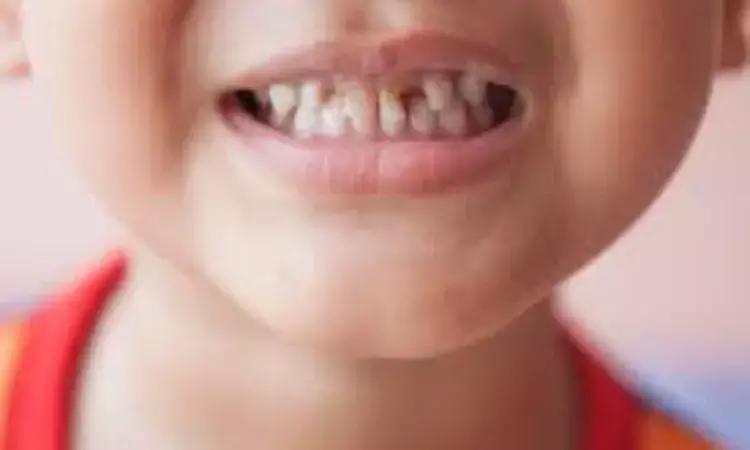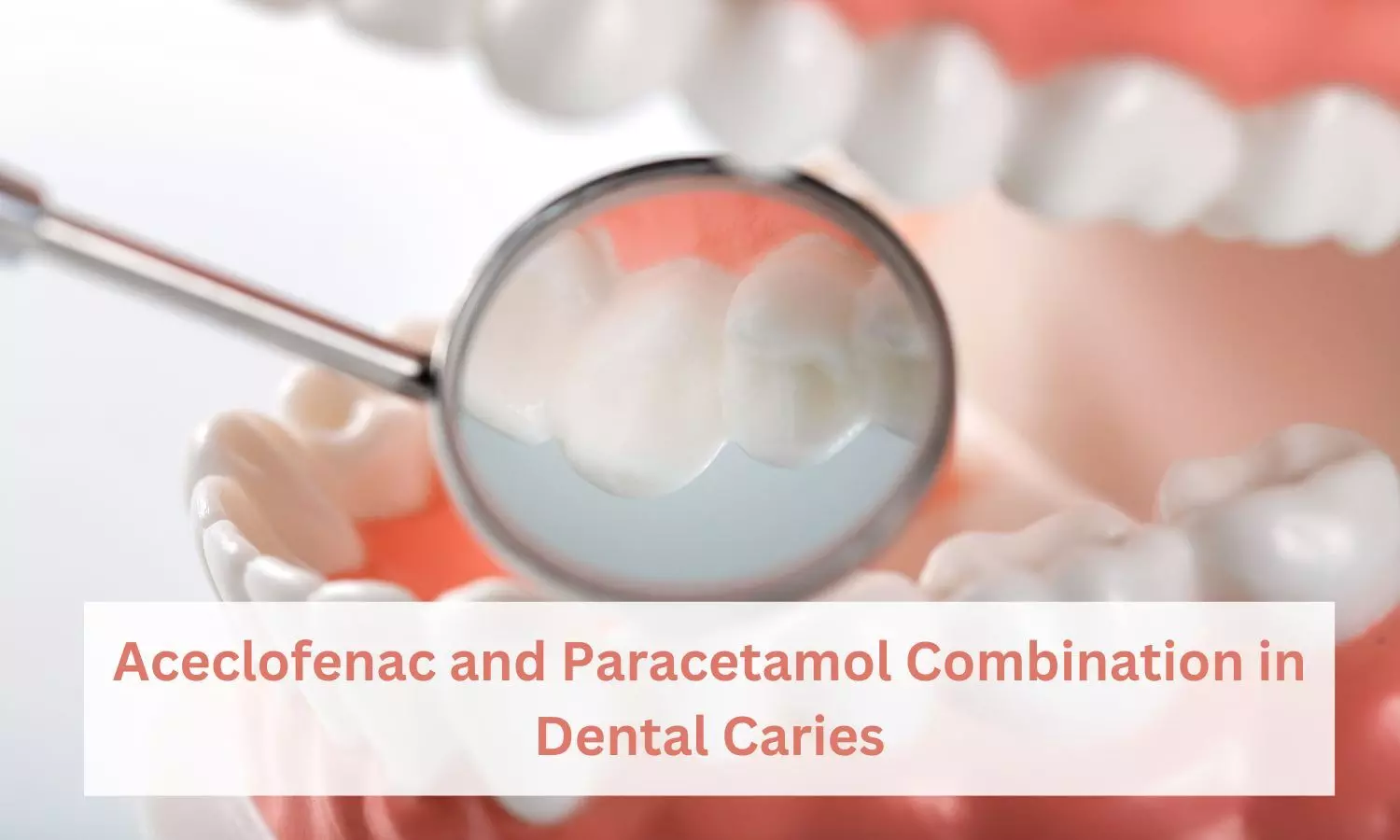- Home
- Medical news & Guidelines
- Anesthesiology
- Cardiology and CTVS
- Critical Care
- Dentistry
- Dermatology
- Diabetes and Endocrinology
- ENT
- Gastroenterology
- Medicine
- Nephrology
- Neurology
- Obstretics-Gynaecology
- Oncology
- Ophthalmology
- Orthopaedics
- Pediatrics-Neonatology
- Psychiatry
- Pulmonology
- Radiology
- Surgery
- Urology
- Laboratory Medicine
- Diet
- Nursing
- Paramedical
- Physiotherapy
- Health news
- Fact Check
- Bone Health Fact Check
- Brain Health Fact Check
- Cancer Related Fact Check
- Child Care Fact Check
- Dental and oral health fact check
- Diabetes and metabolic health fact check
- Diet and Nutrition Fact Check
- Eye and ENT Care Fact Check
- Fitness fact check
- Gut health fact check
- Heart health fact check
- Kidney health fact check
- Medical education fact check
- Men's health fact check
- Respiratory fact check
- Skin and hair care fact check
- Vaccine and Immunization fact check
- Women's health fact check
- AYUSH
- State News
- Andaman and Nicobar Islands
- Andhra Pradesh
- Arunachal Pradesh
- Assam
- Bihar
- Chandigarh
- Chattisgarh
- Dadra and Nagar Haveli
- Daman and Diu
- Delhi
- Goa
- Gujarat
- Haryana
- Himachal Pradesh
- Jammu & Kashmir
- Jharkhand
- Karnataka
- Kerala
- Ladakh
- Lakshadweep
- Madhya Pradesh
- Maharashtra
- Manipur
- Meghalaya
- Mizoram
- Nagaland
- Odisha
- Puducherry
- Punjab
- Rajasthan
- Sikkim
- Tamil Nadu
- Telangana
- Tripura
- Uttar Pradesh
- Uttrakhand
- West Bengal
- Medical Education
- Industry
Silver Diamine Fluoride a Game-Changer in School-Based Dental Care, proposes study

Dental caries, the most prevalent noncommunicable disease globally, poses a significant health equity challenge. In a recent pragmatic clinical trial, researchers have explored the efficacy of Silver Diamine Fluoride (SDF) as a potential alternative to traditional dental sealants and atraumatic restorative treatment (ART) for preventing and controlling dental caries. The study found that SDF application resulted in nearly identical caries incidence compared to traditional dental sealants and ART, showcasing noninferiority in the longitudinal prevalence of caries.
The trial results were published in the journal JAMA Pediatrics.
Dental caries, a prevalent global noncommunicable disease, impacts 50% of US children aged 6 to 8. Despite Medicaid expansions, more than 69 million individuals in the US face access challenges. Hence, researchers conducted a trial, exploring the effectiveness of Silver Diamine Fluoride, aiming to address these issues and contribute valuable insights for improved oral health outcomes. The CariedAway study sought to determine whether the application of SDF in schools is non-inferior to traditional dental sealants and atraumatic restorative treatment (ART) in the prevalence of dental caries.
The trial targeted children in primary schools in New York City, specifically those with a demographic composition of at least 50% Black or Hispanic students and at least 80% receiving free or reduced lunch, a population identified as being at the highest risk of caries in New York. This pragmatic noninferiority cluster-randomized clinical trial enrolled a total of 7418 children aged 5 to 13 years. The participants were randomly assigned at the school level to receive either a 38% concentration SDF solution or traditional glass ionomer sealants with ART. Additionally, each participant received fluoride varnish. The primary outcomes of interest were the prevalence and incidence of dental caries. A total of 7418 children aged 5 to 13 years were enrolled, with 4100 completing follow-up.
Findings:
- Following initial treatment, 55.0% of participants completed at least one follow-up observation.
- The baseline prevalence of dental caries stood at approximately 27.2%, with a significant decrease in the odds of decay prevalence over time (odds ratio [OR], 0.79).
- Notably, SDF demonstrated noninferiority compared to traditional sealants and ART (OR, 0.94).
- The incidence of dental caries in children treated with SDF closely mirrored that of those treated with sealants and ART, highlighting noninferiority in caries prevention.
The CariedAway study's findings propose a potential revolution in school-based dental care, challenging the conventional approach to preventing and managing dental caries. By suggesting that SDF may be as effective as traditional sealants and ART, the study opens the door to a more accessible and potentially equitable solution for preventing the world's most prevalent noncommunicable disease. As this research sparks renewed interest and discussion in the dental health community, further studies and long-term observations will be crucial to validate these findings. If substantiated, the introduction of SDF could herald a transformative era in school-based dental care, offering hope for improved oral health outcomes, particularly among vulnerable populations.
Further reading: Ruff RR, Barry Godín TJ, Niederman R. Noninferiority of Silver Diamine Fluoride vs Sealants for Reducing Dental Caries Prevalence and Incidence: A Randomized Clinical Trial. JAMA Pediatr. Published online March 04, 2024. doi:10.1001/jamapediatrics.2023.6770
BDS, MDS
Dr.Niharika Harsha B (BDS,MDS) completed her BDS from Govt Dental College, Hyderabad and MDS from Dr.NTR University of health sciences(Now Kaloji Rao University). She has 4 years of private dental practice and worked for 2 years as Consultant Oral Radiologist at a Dental Imaging Centre in Hyderabad. She worked as Research Assistant and scientific writer in the development of Oral Anti cancer screening device with her seniors. She has a deep intriguing wish in writing highly engaging, captivating and informative medical content for a wider audience. She can be contacted at editorial@medicaldialogues.in.
Dr Kamal Kant Kohli-MBBS, DTCD- a chest specialist with more than 30 years of practice and a flair for writing clinical articles, Dr Kamal Kant Kohli joined Medical Dialogues as a Chief Editor of Medical News. Besides writing articles, as an editor, he proofreads and verifies all the medical content published on Medical Dialogues including those coming from journals, studies,medical conferences,guidelines etc. Email: drkohli@medicaldialogues.in. Contact no. 011-43720751




